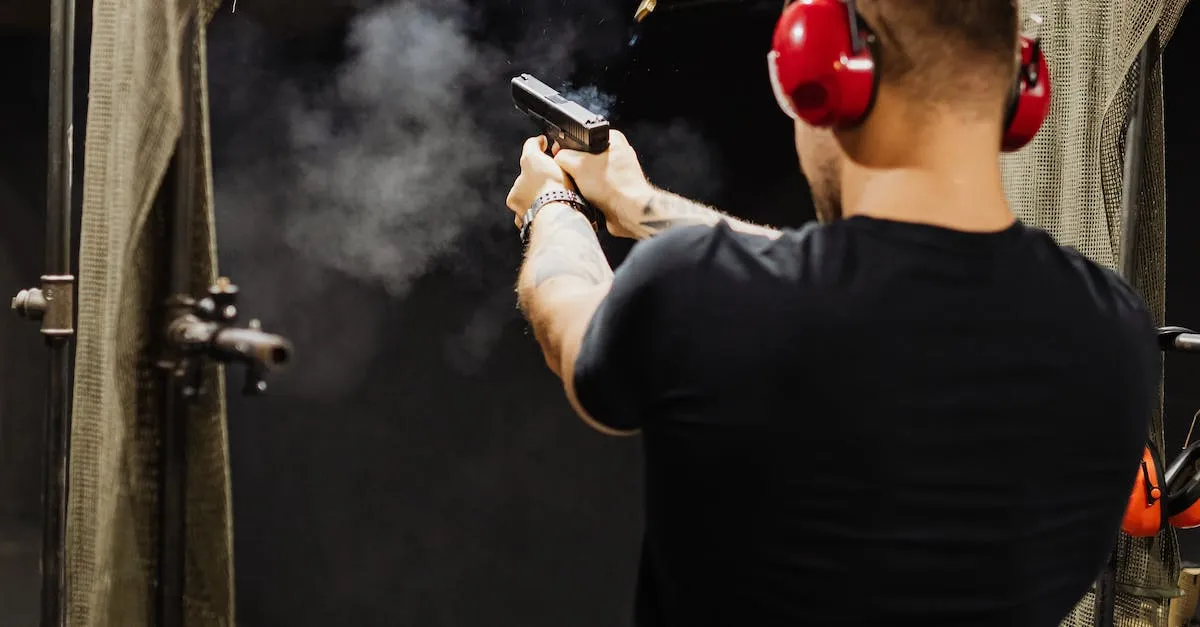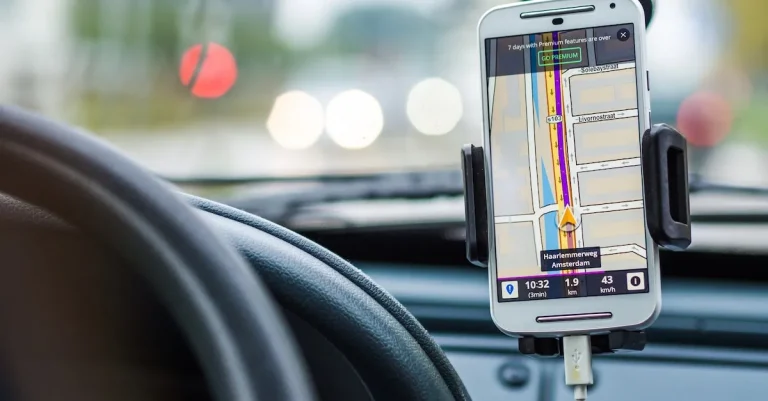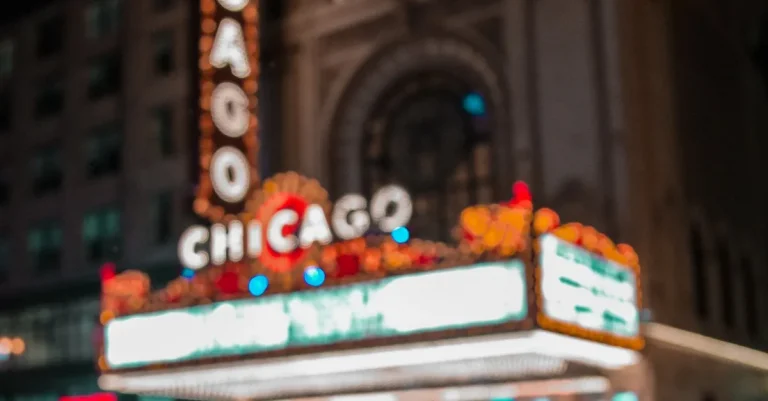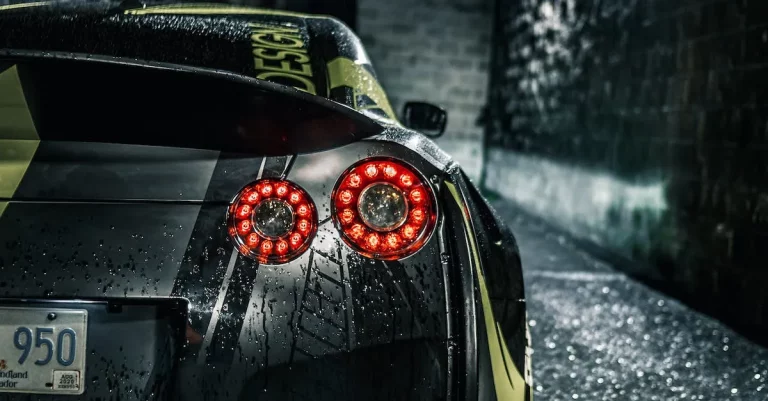Can I Shoot A Gun On My Property In Massachusetts?
Owning and shooting guns on your own property in Massachusetts requires adhering to specific laws and regulations. Get the full scoop in this comprehensive guide.
If you’re short on time, here’s a quick answer: You can legally shoot a gun on your own property in Massachusetts only if local bylaws allow it, you are 500+ feet from any dwelling, have permission from abutters within 500 feet, and follow all applicable state laws on firearms storage, transport, licensing, and use.
Massachusetts State Laws on Shooting Guns on Private Property
Many gun owners in Massachusetts wonder if they can legally shoot a gun on their own property. While individual rights are important, it’s crucial to understand and abide by the state laws to avoid any legal consequences. Here are some key factors to consider:
Definition of ‘Dwelling’
In Massachusetts, the definition of ‘dwelling’ plays a significant role in determining whether shooting a gun on private property is permissible. According to state law, a ‘dwelling’ includes any residential building or structure, including its curtilage (the yard or grounds surrounding the building).
It’s important to note that discharging a firearm within a dwelling or its curtilage is generally prohibited except in cases of self-defense.
500-Foot Rule
The ‘500-foot rule’ is an important aspect of Massachusetts gun laws. According to this rule, it is illegal to discharge a firearm within 500 feet of a dwelling without the owner’s consent. This rule aims to ensure the safety of nearby residents and prevent accidents or disturbances.
Violating this rule may result in serious legal consequences, so it’s essential to be aware of your surroundings and obtain proper consent if necessary.
Types of Guns Allowed
Massachusetts has strict regulations regarding the types of guns allowed for private ownership. The state enforces an Assault Weapons Ban, which prohibits the possession, sale, or transfer of certain firearms classified as assault weapons.
It’s important to familiarize yourself with the specific firearms that are prohibited in Massachusetts to ensure compliance with the law. The Massachusetts Attorney General’s office provides detailed information on their official website (www.mass.gov).
Security and Storage Requirements
When it comes to gun ownership, Massachusetts requires responsible storage and security measures to prevent unauthorized access. Owners must keep their firearms in a locked container or equipped with a tamper-resistant mechanical lock or other safety device.
Additionally, ammunition must be stored separately from firearms. Adhering to these requirements not only ensures compliance with the law but also helps prevent accidents and unauthorized use of firearms.
It’s important to note that this article provides a general overview of Massachusetts state laws on shooting guns on private property. For specific and up-to-date information, it is recommended to consult official government websites, legal professionals, or local law enforcement agencies.
Local Bylaws and Ordinances
When it comes to shooting a gun on your property in Massachusetts, it is important to familiarize yourself with the local bylaws and ordinances that may apply. These regulations can vary from town to town, so it’s essential to do your research and understand the rules specific to your area.
Discharge Bans
Some towns in Massachusetts have implemented discharge bans, which prohibit the firing of firearms within certain areas. These bans are typically put in place to ensure public safety and prevent accidents or injuries.
It is crucial to check if your town has a discharge ban in effect before considering shooting a gun on your property.
Noise Ordinances
In addition to discharge bans, noise ordinances may also apply to shooting guns on your property. These ordinances aim to regulate noise levels to maintain the peace and tranquility of the community. They may restrict the discharge of firearms during certain hours or require the use of noise-reducing devices.
Make sure to familiarize yourself with any noise ordinances that may be in place in your town.
Zoning Restrictions
Another factor to consider when shooting a gun on your property in Massachusetts is zoning restrictions. Zoning laws dictate how land can be used in a specific area, and they may have implications for recreational shooting.
Some residential areas may have restrictions on discharging firearms, while certain rural zones may have more lenient regulations. It is advisable to review the zoning restrictions in your town or city to ensure compliance.
It is important to note that this information is provided as a general guideline, and it is always best to consult local authorities or legal professionals to get the most accurate and up-to-date information pertaining to your specific situation.
For more information on local bylaws and ordinances in Massachusetts, you can visit the official website of your town or city or reach out to the local police department.
Getting Consent from Neighbors
Before shooting a gun on your property in Massachusetts, it is important to consider your neighbors and obtain their consent. This not only helps maintain a positive relationship with those around you but also ensures that you are following the necessary legal and safety protocols.
Notifying Abutters
One way to approach this is by notifying your abutters, which are the neighboring property owners. This can be done through a formal letter or by simply having a conversation with them. By informing them of your intentions, you give them the opportunity to voice any concerns they may have.
It’s a good idea to clearly explain the safety measures you will be taking, such as using a designated shooting area, installing proper backstops, and adhering to all local laws and regulations. This can help alleviate any fears or objections they might have.
Dealing with Objections
While most neighbors will likely understand and respect your desire to shoot on your property, there may be instances where objections arise. It is important to handle these objections in a respectful and understanding manner.
If a neighbor expresses concerns about safety, you can address their worries by explaining the precautions you have taken and the safety measures you will continue to implement. It may also be helpful to invite them to visit your shooting area to see firsthand how you prioritize safety.
For neighbors who are simply uncomfortable with the idea of guns being fired nearby, it is important to listen to their concerns and try to find a compromise. Perhaps you can limit the times or days you shoot, or even offer to notify them in advance so they can plan accordingly.
By being open to discussion and finding common ground, you can maintain a positive relationship with your neighbors.
Alternative Options
If, despite your efforts, you are unable to obtain consent from your neighbors, there are alternative options to consider. One option is to join a local shooting club or range, where you can practice shooting in a controlled and designated environment.
This allows you to still enjoy your hobby while respecting the concerns of your neighbors.
Another option is to explore the possibility of leasing or renting a private shooting range. There are various facilities available that cater to individuals who want to shoot on their own property but are unable to do so due to zoning restrictions or objections from neighbors.
Remember, it is always important to follow local laws and regulations regarding shooting on your property. If you are unsure about any legal requirements, it is recommended to consult with local authorities or seek legal advice.
For more information on shooting regulations in Massachusetts, you can visit the Massachusetts government website or consult with local law enforcement agencies.
Licensing Requirements for Gun Owners
Before shooting a gun on your property in Massachusetts, it is important to understand the licensing requirements for gun owners. Massachusetts has strict regulations in place to ensure the safety and responsible use of firearms.
Firearms Identification Card
The first step in obtaining a license to shoot a gun on your property is to obtain a Firearms Identification Card (FID). This card is required for the possession, purchase, and transportation of non-large capacity rifles and shotguns.
To obtain an FID, you must be at least 18 years old and pass a background check conducted by your local police department.
License to Carry
If you wish to shoot handguns on your property, you will need to obtain a License to Carry (LTC). The LTC allows the holder to possess, purchase, and transport firearms, including handguns. To obtain an LTC, you must be at least 21 years old, pass a background check, and complete a firearms safety course approved by the Massachusetts State Police.
One-Day License
If you do not have a valid FID or LTC, but still want to shoot a gun on your property, you may be able to obtain a One-Day License. This temporary license allows you to possess and use a firearm for a single day.
One-Day Licenses are typically issued for specific purposes, such as hunting or target shooting events, and must be obtained from your local police department.
Exemptions
There are certain exemptions to the licensing requirements for shooting a gun on your property. For example, law enforcement officers, members of the military, and licensed firearms dealers are exempt from some of the licensing requirements.
Additionally, individuals who are temporarily borrowing a firearm for lawful purposes, such as hunting or target shooting at a licensed range, may not need a license. It is important to familiarize yourself with the specific exemptions that may apply to your situation.
For more detailed information on licensing requirements for gun owners in Massachusetts, it is recommended to visit the official website of the Massachusetts Executive Office of Public Safety and Security: mass.gov/massachusetts-firearms-laws.
Safety Best Practices
When it comes to shooting a gun on your property in Massachusetts, safety should always be the top priority. Following these best practices will ensure a safe and enjoyable shooting experience.
Backstops
Having a proper backstop is crucial when shooting on your property. A backstop is a barrier that stops bullets from traveling beyond your intended target. It should be made of a material that can effectively absorb and stop bullets, such as sand, gravel, or a specially designed bullet trap.
It is important to regularly inspect and maintain your backstop to ensure its effectiveness.
Supervision
It is recommended to always have a responsible adult present when shooting on your property. This person should be knowledgeable about gun safety and able to provide guidance and supervision. If you are new to shooting or have children present, it is advisable to seek out professional instruction or training to ensure everyone’s safety.
Hearing Protection
Protecting your hearing is essential when shooting firearms. The sound produced by gunfire can reach levels that are harmful to your ears. Wearing proper hearing protection, such as earmuffs or earplugs, can help prevent long-term damage.
It is important to make sure everyone participating in shooting activities wears hearing protection.
Signage
Posting appropriate signage on your property is important to inform others about the presence of shooting activities. By placing signs at the entrance or perimeter of your property, you can alert visitors and neighbors to the potential dangers and ensure their safety.
Additionally, displaying signs indicating the direction of the shooting range can help prevent accidents and misunderstandings.
Remember, it is essential to familiarize yourself with the specific laws and regulations regarding shooting on your property in Massachusetts. Always prioritize safety and be mindful of your surroundings to ensure a responsible and enjoyable shooting experience.
Conclusion
Shooting a gun on private property in Massachusetts requires careful adherence to state laws, local bylaws, and best safety practices. Be a responsible gun owner by staying 500+ feet from dwellings, getting neighbor consent, using proper backstops, and following all applicable regulations for storage, licensing, transport, and discharge.
With this guide, you can feel confident that target practice or recreational shooting on your land is legal and won’t create noise issues or safety concerns for your community.








